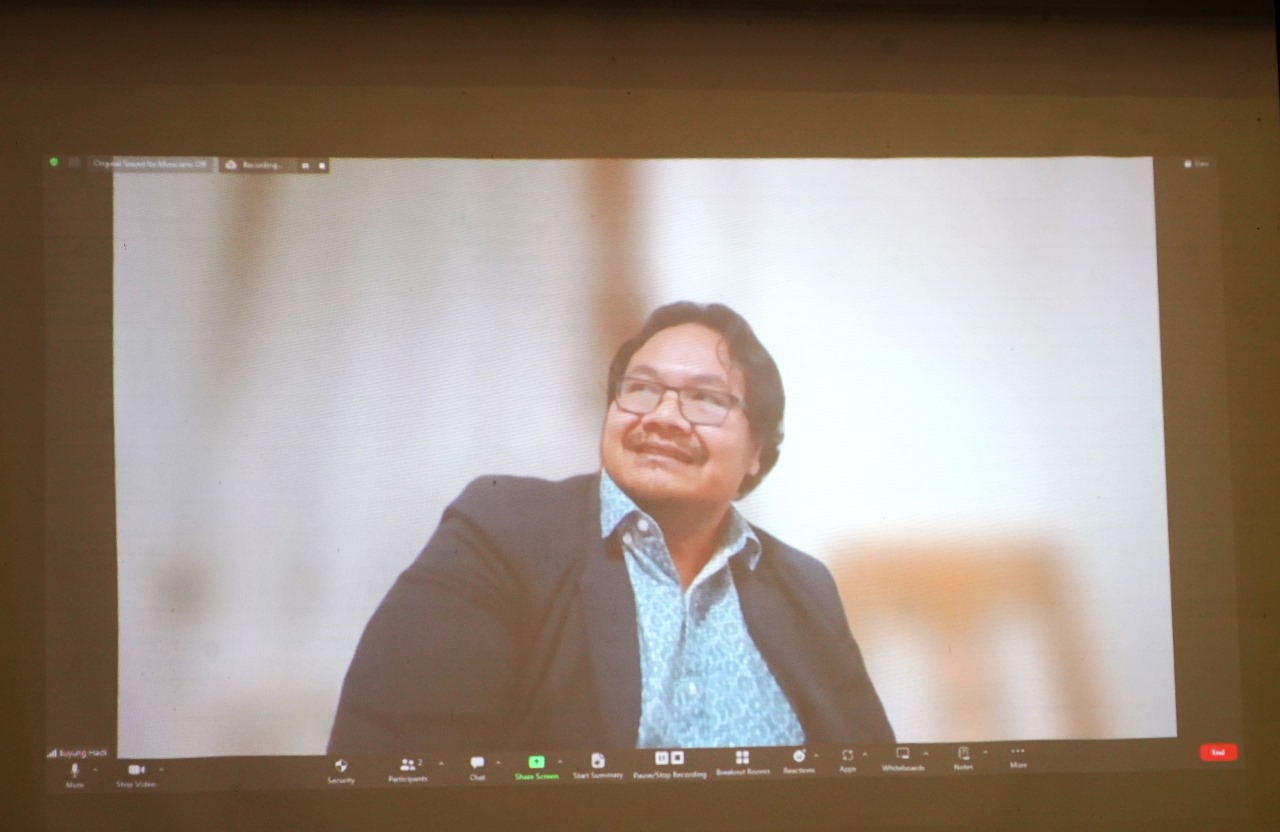A shocking fact shows that invasive insect pests can cost the world up to 10 billion USD in agriculture sector, every year. It becomes the first challenge emerged by climate change, which caused a poleward shift in distribution of insects. The second challenge is demography and metabolism of insects.
This was delivered by Buyung A.R. Hadi, Ph.D., an entomologist who has worked along with 100.000 farmers from 60 countries, affiliated with Food and Agriculture Organization (FAO), in a general lecture held on 27 November 2023 at Faculty of Agriculture UGM.
Buyung explained, “Referring to climate change issue that makes more areas become warmer than before, the metabolism of insects also become higher because they can eat more in a warm temperature.”
Besides the insect itself, another challenge is the way of managing insect, as simple as the use of pesticide. The problem focuses on overused pesticides without necessary amount in producing process, ending up in another problem; pesticide pollution. There is 24,5 million km2 of global agricultural land that is at risk of pesticide pollution and 31% of the land is at high risk.
“Pesticide pollution will affect the disability-adjusted life years of non-communicable diseases in 47% countries, such as musculoskeletal disorders, neoplasms, and mental disorders. Pesticide pollution also becomes the main driver of declining on abundance and diversity of pollinators,” he added.
The above-mentioned challenges can be managed by integrated pest management (IPM) focusing on effective chemical use to create good agronomy and increase diversity of crops. Not only IPM, but also there is an opportunity to implement biocontrol techniques, such as intercropping, push-pull, and planting other vegetations, which aims to reduce crop damage by over 50% and reduce pest abundance by 63%.
“An example of biocontrol technique implementation is a push-pull as habitat management to repel fall armyworm (FAW) on maize crops and to attract natural enemies,” Buyung said.

To summarize, Buyung gave his closing statement that the challenges and opportunities that exist in the agricultural sector globally require the role of any kind stakeholders, starting from government, farmers, to market itself.
This insightful general lecture shows a commitment to support SDGs, especially Goal 15: “Life on Land”. Students became more aware about the risk of pesticide pollution that also could harm humans, animals, and of course, crops.
Writer: Hanita Athasari Zain
Pictures: Media Faperta
